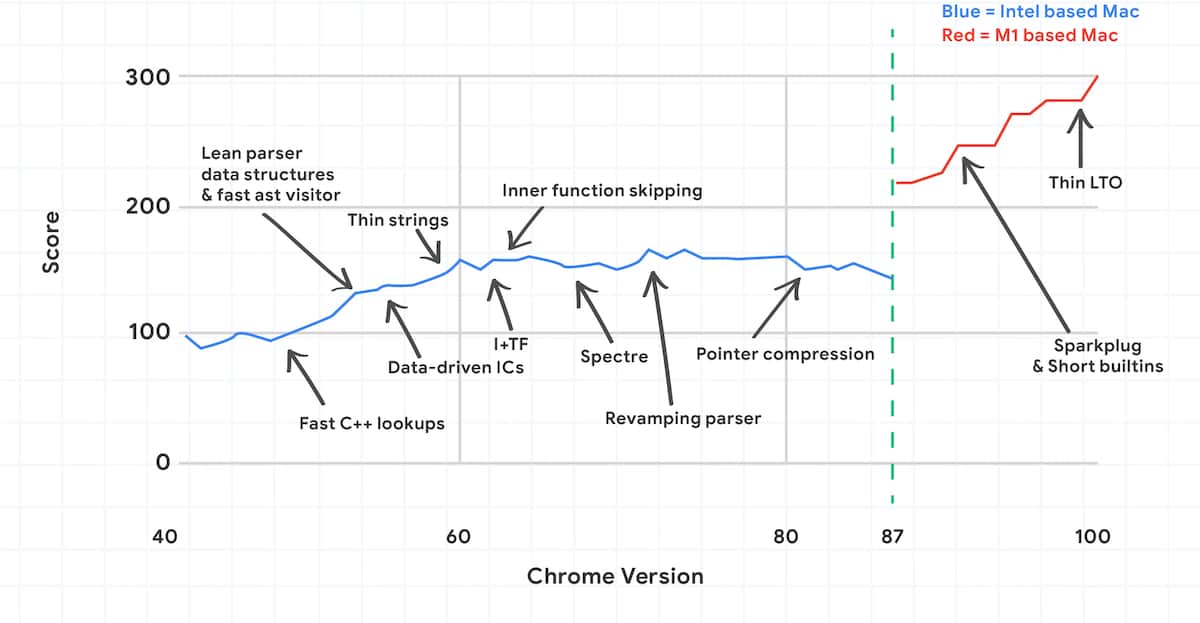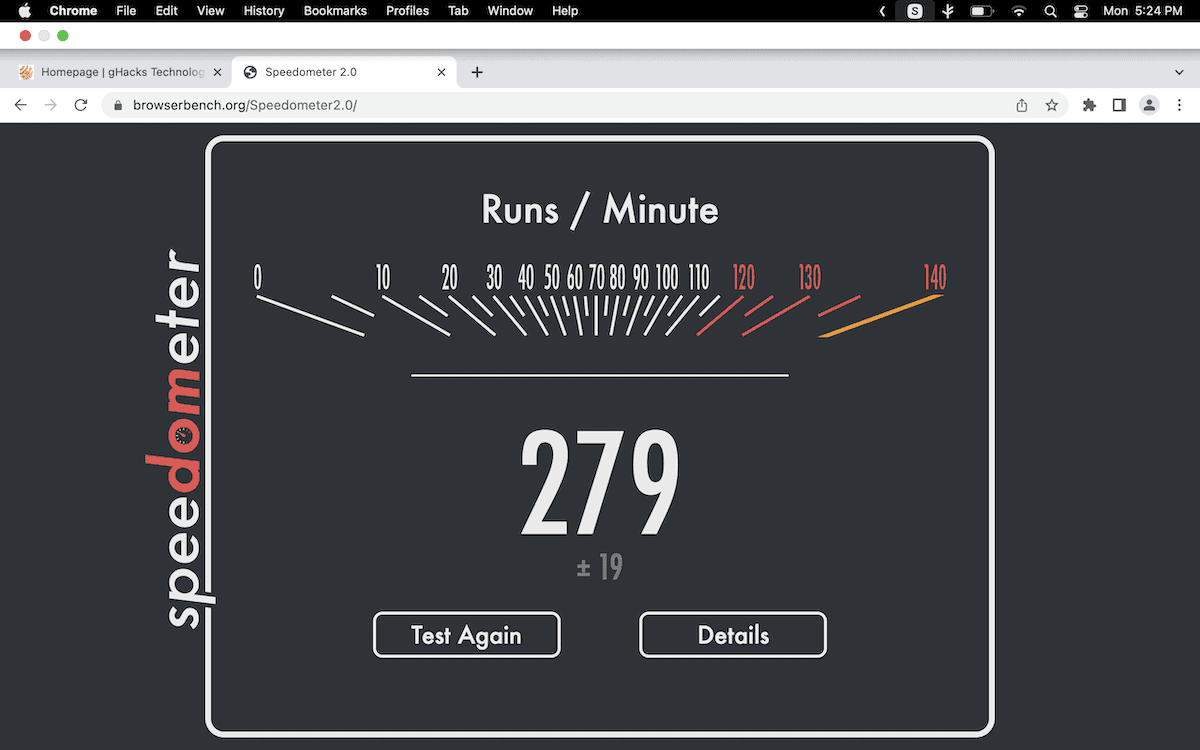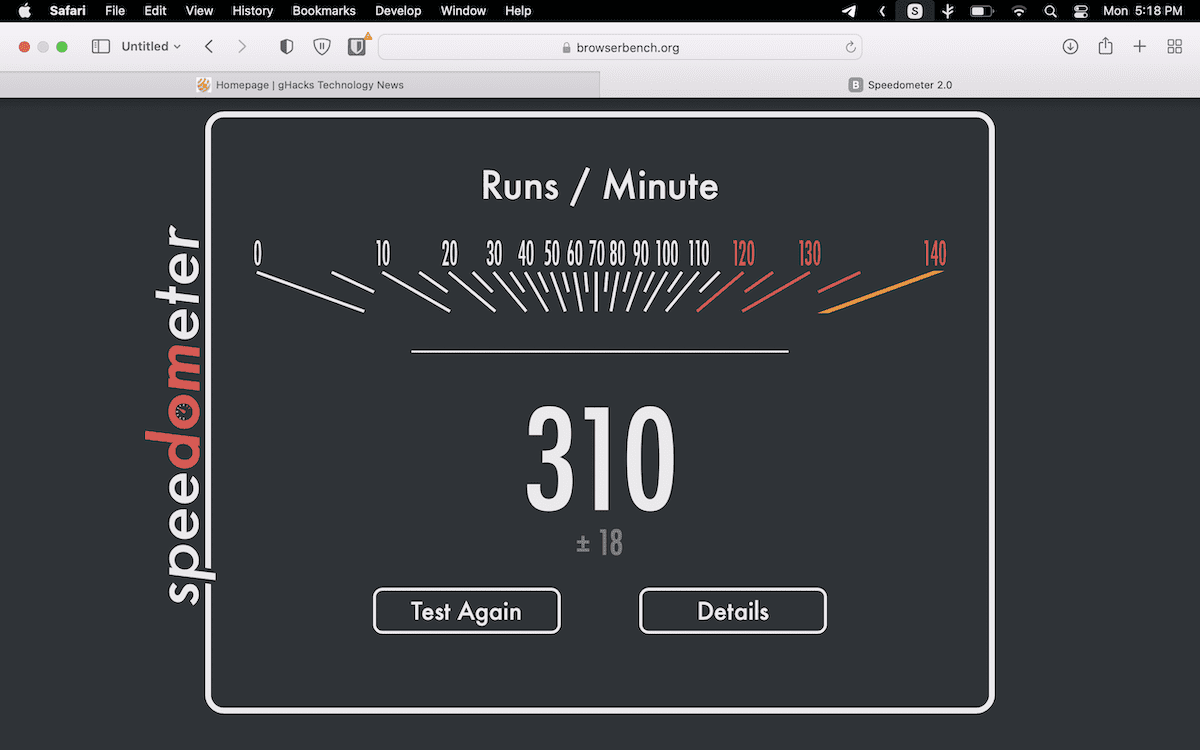Google has posted a cryptic message on Twitter that says that Chrome is 20% faster than before on macOS. In March 2022, the Mountain View company did something similar, when it published an article on its Chromium blog to highlight how it was the best ranked browser on Speedometer.

In case you didn’t know, Speedometer 2.0 is a browser benchmark test developed by Apple. Ever since it debuted in 2014, it has been a prime marketing tool for browser makers to boast how good their application is.
Coming to back to Google’s article, it mentioned the technical details about how it optimized Chrome’s performance over the years, and the challenges it faced, such as the Spectre CPU exploit for which it had to take a performance dip to improve the security of user data.
On the bright side, the implementation of the V8 Sparkplug JavaScript compiler along with short built-in calls, helped Chrome reduce the overhead, which resulted in better performance memory-wise. ThinLTO (Link Time Optimization) also played a key role in Chrome getting a boost to its performance.

The biggest difference, however, was not just in terms of software improvements, but the hardware used in Mac computers. Google lavished praise on Apple Silicon, the M1 processor, as a game changer and that its performance was drastically better compared to Macs with Intel CPUs.
It also claimed that Chrome 99 was 15% faster than Apple’s Safari browser, at least in benchmarks. Remarkably, the more impressive detail was that Chrome’s performance had improved greatly in a span of less than 2 years. Chrome 99 was 43% faster on macOS than the first version for Apple Silicon, which was released in 2020.
Now that you have some context about the topic, you may understand why I find the lack of information in today’s Tweet from Google to be surprising. There is no blog article to highlight what kind of magic was done in the development process to achieve this. I mean, a 20% increase in the performance is no trivial matter, surely an explanation is due.
That said, all these optimizations made to Chromium might explain why browsers that use the Blink engine run significantly better on macOS than other browsers, especially Firefox. Mozilla’s browser is quite bad as far as energy efficiency is concerned, and I say that as a Firefox fanboy.
You can test your browser’s performance by running the Speedometer 2.0 benchmark. It runs a JavaScript web app demo of to-do lists, to measure the simulated user interactions, and scores the performance based on it. As with any benchmark, I’d advise not to take the numbers too seriously. No benchmark comes close to actual usage.

I tested Chrome on the benchmarking site, and while it did not score 360 like Google claims it did, it managed to clock 279 points. That’s impressive, but actually not the highest I’ve seen in Speedometer, Safari netted 310 points, while the other major browsers stayed in the mid 200 range. Like I said, these numbers don’t really matter.

Chrome has always been a fast browser, but speed isn’t everything, especially when it comes to laptops. Battery life is important, and it boils down to performance efficiency. Then there is the issue of memory leaks, which still isn’t as impressive as Firefox, Edge or Brave.
What’s your favorite browser on macOS?
Thank you for being a Ghacks reader. The post Google says Chrome is 20% faster than before on macOS appeared first on gHacks Technology News.
